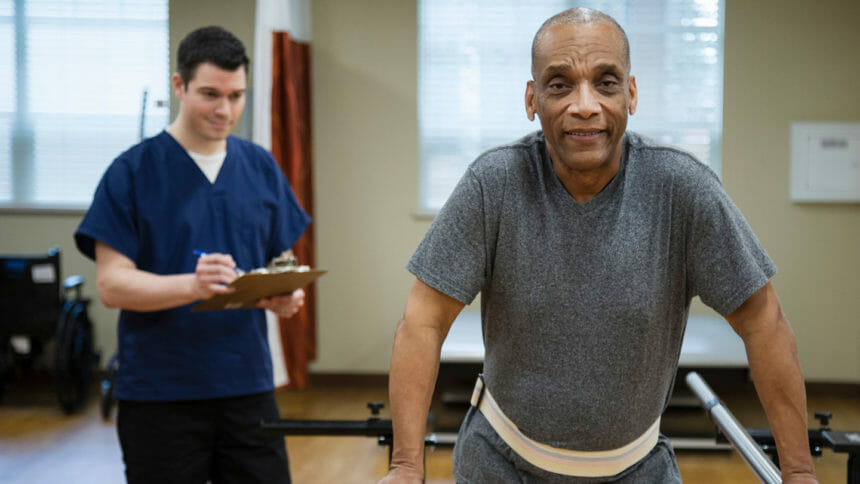
(HealthDay News) — For veterans admitted to the hospitals, a supervised walking program, Assisted Early MobIlity for Hospitalized Veterans (STRIDE), is associated with lower odds of discharge to a skilled nursing facility (SNF), according to a study published online June 6 in the Annals of Internal Medicine.
Susan N. Hastings, MD, from the Durham VA Health Care System in North Carolina, and colleagues examined the effect of a supervised walking program on discharge to an SNF, length of stay and inpatient falls in a cluster randomized trial. Patients aged 60 years or older admitted for two or more days to a participating ward. The number of patients were similar in the pre-STRIDE and post-STRIDE time periods (6,722 and 6,141 patients, respectively).
The researchers found that per hospital, the proportion of patients with any documented walk during a potentially eligible hospitalization varied from 0.6% to 22.7%. The estimated rates of discharge to an SNF were 13% and 8% pre- and post-STRIDE, respectively.
The odds of discharge to an SNF were lower among eligible patients hospitalized in post-STRIDE time periods versus pre-STRIDE (odds ratio, 0.6). No differences were seen in length of stay or inpatient falls.
“Health systems should consider hospital walking programs as a reasonable means to improve quality of care for older adults,” the authors write.
Abstract/Full Text (subscription or payment may be required)
Related articles:
Psychological resilience boosts walking abilities after hip fracture: study
Stroke survivors have 54% lower mortality with a 30-minute daily walk



